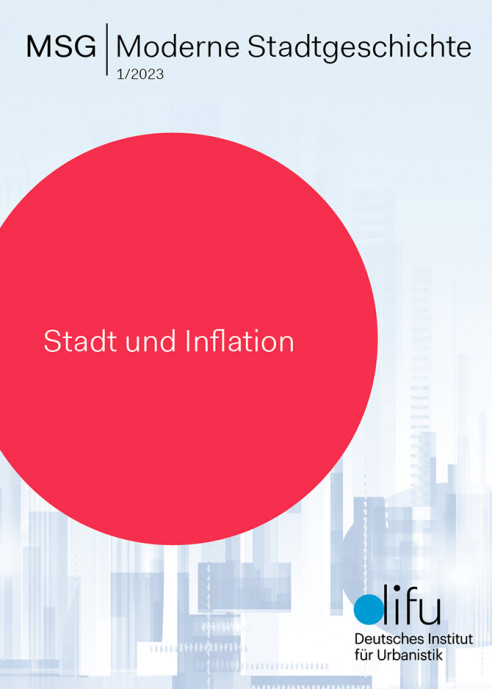Die Inflation in Deutschland 1914-1923 in stadtgeschichtlicher Perspektive
DOI:
https://doi.org/10.60684/msg.v54i1.1Schlagworte:
Inflation, Deutschland, 1923Abstract
This issue aims to discuss the impact and experience of the inflation of 1914-1923 in Germany from an urban history perspective. Motivated by the current problematic of excessive public spending in order to offset the depressive effects of Covid-19 on the economy and the increasing interest in historical research in hyperinflation, the introduction aims to contextualise inflationary effects within long-term processes of urbanisation and of city-state relationships, starting with a short sketch of the municipal finance system before World War One. A core of three contributions discuss the urban experiences of hyperinflation from different vantage points (income, administrative challenges, spending) with a close focus on the role of urban administrations. Another contribution highlights the significance of municipal ‘Notgeld’ (substitute money) for the cultural identity of Germen towns in the 1920s. The contemporary perspective is developed in a further contribution explaining the current financial status and problems of German municipalities today. A short report directs readers’ attention to an upcoming exhibition highlighting German Inflation with a special focus on the city of Frankfurt am Main. The concluding book review looks for similarities and contrasts in inflation experiences of other European countries during the interwar period, such as Austria, Hungary and Italy.
Downloads
Veröffentlicht
Ausgabe
Rubrik
Lizenz
Copyright (c) 2023 Christoph Bernhardt, Dieter Schott

Dieses Werk steht unter der Lizenz Creative Commons Namensnennung 4.0 International.






